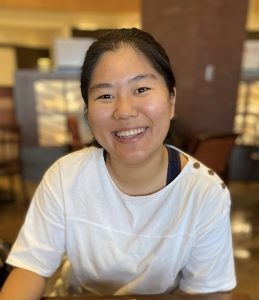3 Production of the Language of Relationships Guide
The Language of Relationships with Aboriginal and Torres Strait Islander Peoples – Introductory Guide (hereafter ‘Language of Relationships Guide’) was created to support the UQ community to build stronger relationships between Aboriginal and Torres Strait Islander peoples and non-Indigenous peoples across the university. The Language of Relationships Guide aims to inform students and staff of appropriate language and provide tools for non-Indigenous peoples in the context of formal, academic communication and everyday conversations that will build and enhance those relationships.
We recognise that students and staff will have varying degrees of knowledge and confidence in building relationships between Aboriginal and Torres Strait Islander peoples and non-Indigenous peoples. We acknowledge too that some people may experience a range of emotions and / or discomfort in learning about the lived experiences of Aboriginal and Torres Strait Islander peoples. Therefore, you may like to talk with a trusted friend, health professional or counsellor if it feels important to unpack and process emotions further.
2021 Student-Staff Partnership Program
The Language of Relationships Guide was produced as part of a 2021 Student-Staff Partnership (SSP) Project. This approach empowered students and staff to collaborate as equal partners and mutual learners. It also provided the opportunity to connect varied skills, talents and voices across the UQ community that facilitated a positive experience for those involved. During the design phase of the Language of Relationships Guide, students and staff worked on tasks in smaller project teams to capitalise on strengths and facilitate learning. Decisions about the design, writing and editing were made collectively by the whole SSP Team.
Resources including a ‘Five things to Know’ fridge magnet, and five videos for the Language of Relationships Guide involved the SSP Team and members of the UQRAP Network. You will find those videos in various chapters and the fridge magnet is part of the Welcome Kit when you join the UQRAP Network.
The Project Team and authors included:
| Name | Connection to Country | Position | 2021 SSP Team | Signature |
|---|---|---|---|---|
| Professor Tracey Bunda | Ngugi, Wakka Wakka woman | Head of Academic Programs, Aboriginal & Torres Strait Islander Studies Unit | Semester 1 and 2 | |
| Kealey Griffiths | Family ties to the Yuggera people and born on Iningai land | Student, Faculty of Science | Semester 1 and 2 |  |
| Lucas Schober | Wuthathi, Yadhegana & Kaurareg man, with family ties to the Yindjibarndi people | Student, Faculty of Engineering, Architecture & Information Technology | Semester 1 and 2 |  |
| Mia Strasek-Barker | Gamilaraay/Yuwalaraay woman | Reconciliation Action Plan Manager, UQ Library | Semester 1 and 2 | |
| Nell Angus | Non-Indigenous woman born on Gunaikurnai Country | Project Manager (Indigenous Engagement Initiatives), Office of the Pro-Vice-Chancellor (Indigenous Engagement) | Semester 1 and 2 | |
| Sybilla Wilson | Non-Indigenous woman born on Ngunnawal Country | Senior Service Improvement Manager, Student Services | Semester 1 and 2 | |
| Thomas Scanlan | Jarowair man from the Bunya Mountains | Student, Faculty of Science | Semester 1 and 2 |  |
| Vanessa Eagles | Non-Indigenous woman born (living and working) on Gumbaynggirr Country | Student (graduated mid-2021), Faculty of Humanities & Social Sciences | Semester 1 | |
| Keiko Mishiro | Non-Indigenous woman of Mino-land in Gifu (Japan) | Student, Faculty of Medicine | Semester 2 | |
| Dr Laura Deane | Non-Indigenous woman working on Kaurna Country (Adelaide SA) | Principal Research Administration Officer, Aboriginal and Torrres Strait Islander Studies Unit | Editing and proofreading, publication support (2023) |
Writing Style
It is important to recognise that the SSP Team intentionally decided on a specific writing style, one that is conversational or informal in tone, yet should be regarded as authoritative. This decision is reflective of how the SSP Team chose to work through the lifecycle of the project and hopes to provide a sense of sharing and encouragement that extends beyond the physical guide.
How we worked
The SSP Team was respectful of each other’s workload and capacities, which allowed for an informal collaborative approach that was structured by regular meetings and soft deadlines. Meetings were held online or in person with follow up actions and communication occurring through email or Microsoft Teams. To facilitate easy access and live version control, resources and working documents were saved on Google Drive and Microsoft Teams. The Team also engaged with individuals or teams outside of the project’s immediate members, such as Marketing and Communication and the Library’s Digital Experience Team to ensure a sophisticated final product.

Back row: Sybilla Wilson, Prof Tracey Bunda, Nell Angus
Middle row: Thomas Scanlan, Vanessa Eagles, Lucas Schober (image on laptop); Kealey Griffiths
Missing: Mia Strasek-Barker and Keiko Mishiro


“We hope you find this guide informative and easy to understand, as we know these topics can be tricky at times. Our group really enjoyed learning and working together and we hope it may offer some learnings for you too”. (SSP Team 2021)

